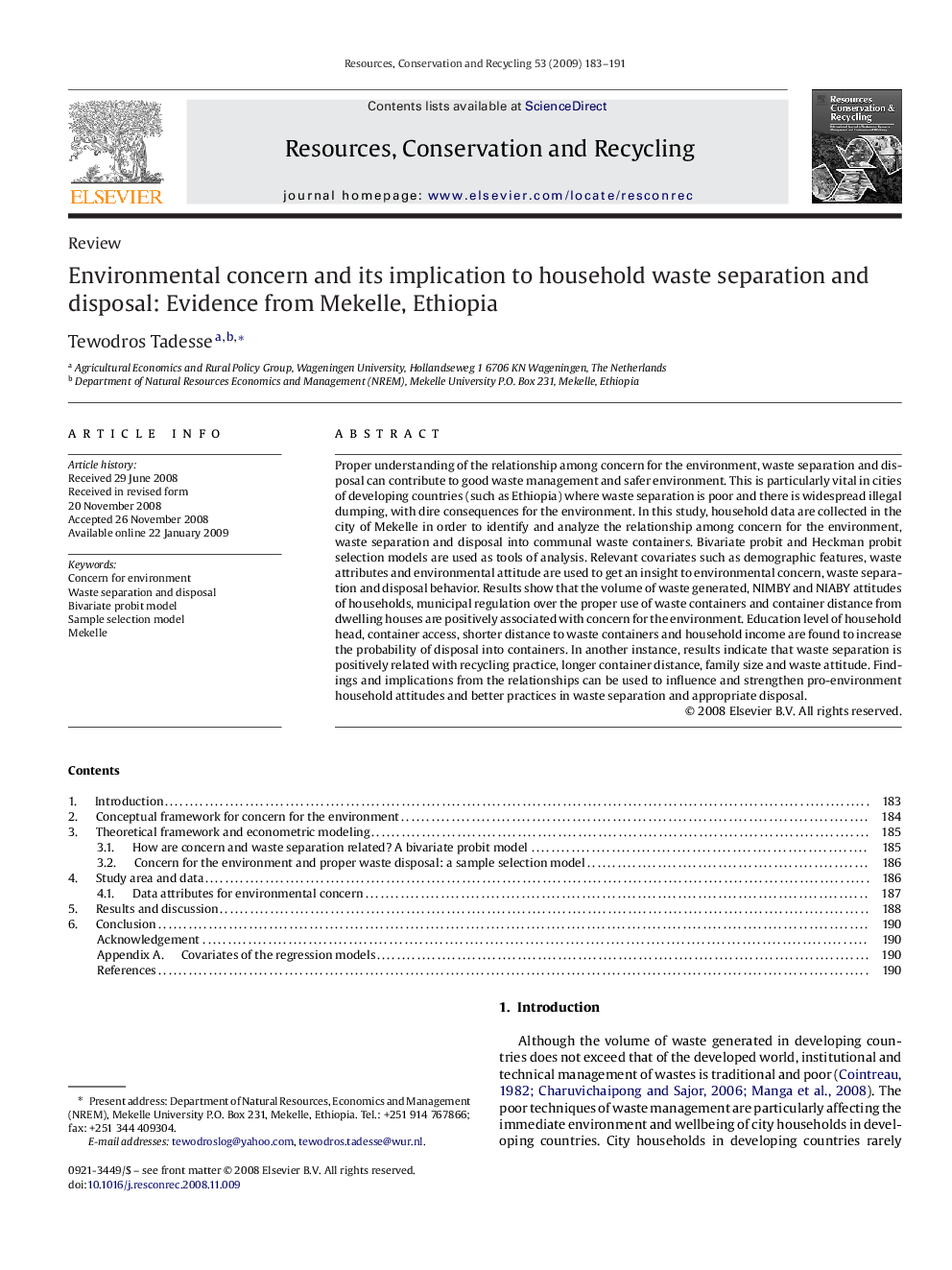| Article ID | Journal | Published Year | Pages | File Type |
|---|---|---|---|---|
| 1064151 | Resources, Conservation and Recycling | 2009 | 9 Pages |
Proper understanding of the relationship among concern for the environment, waste separation and disposal can contribute to good waste management and safer environment. This is particularly vital in cities of developing countries (such as Ethiopia) where waste separation is poor and there is widespread illegal dumping, with dire consequences for the environment. In this study, household data are collected in the city of Mekelle in order to identify and analyze the relationship among concern for the environment, waste separation and disposal into communal waste containers. Bivariate probit and Heckman probit selection models are used as tools of analysis. Relevant covariates such as demographic features, waste attributes and environmental attitude are used to get an insight to environmental concern, waste separation and disposal behavior. Results show that the volume of waste generated, NIMBY and NIABY attitudes of households, municipal regulation over the proper use of waste containers and container distance from dwelling houses are positively associated with concern for the environment. Education level of household head, container access, shorter distance to waste containers and household income are found to increase the probability of disposal into containers. In another instance, results indicate that waste separation is positively related with recycling practice, longer container distance, family size and waste attitude. Findings and implications from the relationships can be used to influence and strengthen pro-environment household attitudes and better practices in waste separation and appropriate disposal.
